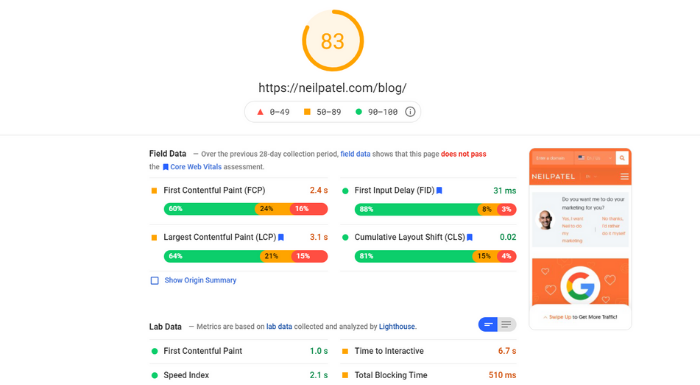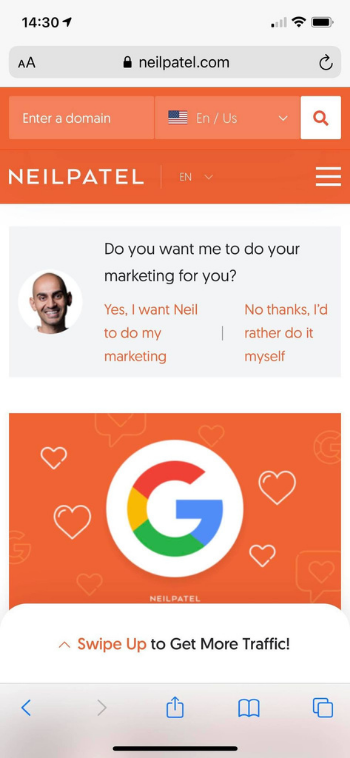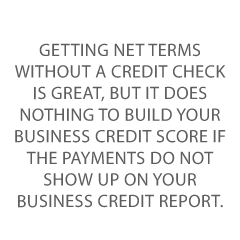
8 Must-Know SEO Best Practices For Developers
Web development and search engine optimization (SEO) become increasingly intertwined as search engines become more intelligent. Therefore, experts in both fields need to have a basic understanding of the other.
Today, I’m speaking to web developers. While you can leave the nitty-gritty to the SEO experts, the best practices I’ll talk about in this piece could help you communicate with your team, raise your brand image, and provide better services to your customers. In this post, learn the 8 best practices for SEO for developers.
What Do Developers Need to Know About SEO?
If you’re responsible for building and maintaining a website, you’re also partially responsible for making sure it can rank in the search engines.
SEO is often broken down into three categories:
- technical SEO: how search engine bots crawl and index a website
- on-page SEO: how well the content on the site is optimized for target keywords and user experience
- off-page SEO: how other websites link to your website to boost its authority
Naturally, developers play a big part in technical SEO, but this isn’t where SEO for developers should end. They also help ensure a positive user experience, which can help with on- and off-page SEO.
Here are eight best SEO practices developers can focus on to take their efforts to the next level.
1. Keep Your Code Clean
Web developers can do so many amazingly intricate things, but it pays to keep things simple more often than not.
Consumers value convenience more than almost anything else. We want quick access to information, and everything that gets in the way damages the user experience. More complicated code can lead to more roadblocks for site visitors.
Keeping your code clean is one of the first steps in SEO for developers. When people land on a website, they make quick-fire decisions about whether it’s worth the effort.
2. Keep Load Times Fast
Building on the point about complicated code: load times are vital to SEO.
Search engines want to send users to websites that quickly and accurately answer their questions.
If another website can deliver comparable information twice as fast as yours, Google will likely prioritize them on search engine results pages (SERPs).

Even if load times weren’t a direct ranking factor, this would still be a big issue.
A page’s load time directly impacts its bounce rate. For example, pages that take two seconds to load have an average bounce rate of six percent. At four seconds, that rate jumps to 24 percent, and once a mere six seconds have passed, 46 percent of visitors are gone.
When Google sees people bouncing straight back to the search results, it likely thinks your page isn’t valuable and assigns less ranking power.
3. Use the Correct Redirects
Websites are constantly evolving. Content gets updated, pages move, new elements are added, and developers make sure this happens smoothly.
The end-user is the most critical factor in this equation because anything you do has to work for them. However, you’ve also got to think about how the crawlers view your website.
This is where it’s essential to understand how redirects work in SEO.
The two most common redirects that affect SEO are 301 and 302 redirects.
A 301 redirect indicates to the search engines that a website or pages have permanently moved. When you use a 301 redirect, the search engines will transfer most of the original page’s link equity to the new page.
A 302 redirect, on the other hand, indicates that a page has moved temporarily. You might use this when you’re redesigning or updating your site, but you still want to keep the original page’s link equity.
Using redirects correctly may seem like a small thing, but it can make a big difference in SEO terms.
4. Add a Sitemap
Search engines are very sophisticated, but they don’t experience a website like humans do. They need you to give them clues about how pages link together, and one of the ways you can do this is with your sitemap.
When indexing your site, bots follow every link to see where they go. One way you can help with this process is by adding a sitemap.
Google and the other search engines should be able to crawl your entire site if you use good internal linking. However, large sites can get complicated, so a sitemap makes things easier for the search engines and ensures your site will be indexed appropriately.
5. Make Sure the Site Works on Mobile
Mobile devices account for 54.8 percent of website traffic. Google knows this, so it prioritizes websites that offer an excellent mobile experience.

Google now uses mobile-first indexing, which means when its bots crawl your site, they use the mobile version. If your website doesn’t perform on mobile devices, it’s unlikely to rank highly on SERPs.
Even today, too many websites neglect this vital fact.
To check how your website performs for mobile, Google’s mobile-friendly test is a convenient option. It gives you a quick performance check and tells you where you can make improvements.
If you want to dig a little bit deeper, then Google Lighthouse is also a great option for overall UX.
6. Check the Robots.txt File
The robots.txt file sets rules for how web crawlers crawl different parts of a website. It’s a simple piece of code, but it can have a significant impact.
A robots.txt file unintentionally blocking crawlers from content can be catastrophic for SEO. If the bots can’t crawl the page, it won’t be indexed—meaning it won’t appear in search results.
Sometimes, webmasters don’t want a page indexed, and a robots.txt file is a valuable tool. However, if your SEO team notices a page that should be getting traffic isn’t, keep an eye out for a rogue robots.txt file.
7. Ensure Follow/No Follow Links Are Used Appropriately
Links are like the language of the search engine, so you’ve got to be able to speak it.
One distinction to be aware of is follow links vs. no-follow links.
Follow links, also called do-follow links, are backlinks where the person linking to the page doesn’t edit the HTML to ensure Google doesn’t associate their site with another. When a site gives a clean backlink with no changes, a crawler sees this as one page vouching for the quality of the other.
Crawlers still look at no-follow links to see where they go, but they don’t ascribe value to the link.
From an SEO standpoint, you want follow links from authoritative websites to yours. However, you should still consider no-follow links valuable. Even if the link itself doesn’t give authority, it can still drive traffic to or from your site.
For developers, this means they’ve got to make sure they’re using the right links to communicate properly with the crawlers.
8. Understand and Implement Structured Data
Structured data can be tricky for many people involved with SEO…and this is where developers can really shine. Developers already know how to format a page so that all parts of it flow well and can be read by both human and search engine searchers.

When used well, structured data lets Google know exactly what’s on every part of a webpage. Beyond that, it can tell Google precisely what questions you’re answering. In fact, the FAQ below uses a structured data (schema) markup to indicate to Google that we’re answering common questions.
SEO for Developers: Frequently Asked Questions
How Do Developers do SEO?
Developers should be familiar with technical SEO and effective user experience.
Do Web Developers Do SEO?
Web developers do SEO to some extent. A clean, functioning website that offers a great user experience essential to SEO is all the developer’s domain.
What Is SEO Software Development?
SEO software development is the process of making sure software and web applications are SEO-friendly.
What Is the Role of an SEO Developer?
An SEO developer understands how development decisions will affect a website’s search rankings and organic traffic.
{
“@context”: “https://schema.org”,
“@type”: “FAQPage”,
“mainEntity”: [
{
“@type”: “Question”,
“name”: “How Do Developers do SEO?”,
“acceptedAnswer”: {
“@type”: “Answer”,
“text”: ”
Developers should be familiar with technical SEO and effective user experience.
”
}
}
, {
“@type”: “Question”,
“name”: “Do Web Developers Do SEO?”,
“acceptedAnswer”: {
“@type”: “Answer”,
“text”: ”
Web developers do SEO to some extent. A clean, functioning website that offers a great user experience essential to SEO is all the developer’s domain.
”
}
}
, {
“@type”: “Question”,
“name”: “What Is SEO Software Development?”,
“acceptedAnswer”: {
“@type”: “Answer”,
“text”: ”
SEO software development is the process of making sure software and web applications are SEO-friendly.
”
}
}
, {
“@type”: “Question”,
“name”: “What Is the Role of an SEO Developer?”,
“acceptedAnswer”: {
“@type”: “Answer”,
“text”: ”
An SEO developer understands how development decisions will affect a website’s search rankings and organic traffic.
”
}
}
]
}
SEO for Developers Conclusion
Increasing organic traffic is a key goal for most website owners, so SEO for developers is important.
Good developers naturally aid SEO by creating user-friendly websites, but it pays to understand search engine optimization itself. Even just the basics could allow you to make more informed decisions and offer a better service for your clients.
SEO for developers doesn’t have to be complicated, but it can make all the difference to a website’s success.
How do you approach SEO as a developer?



